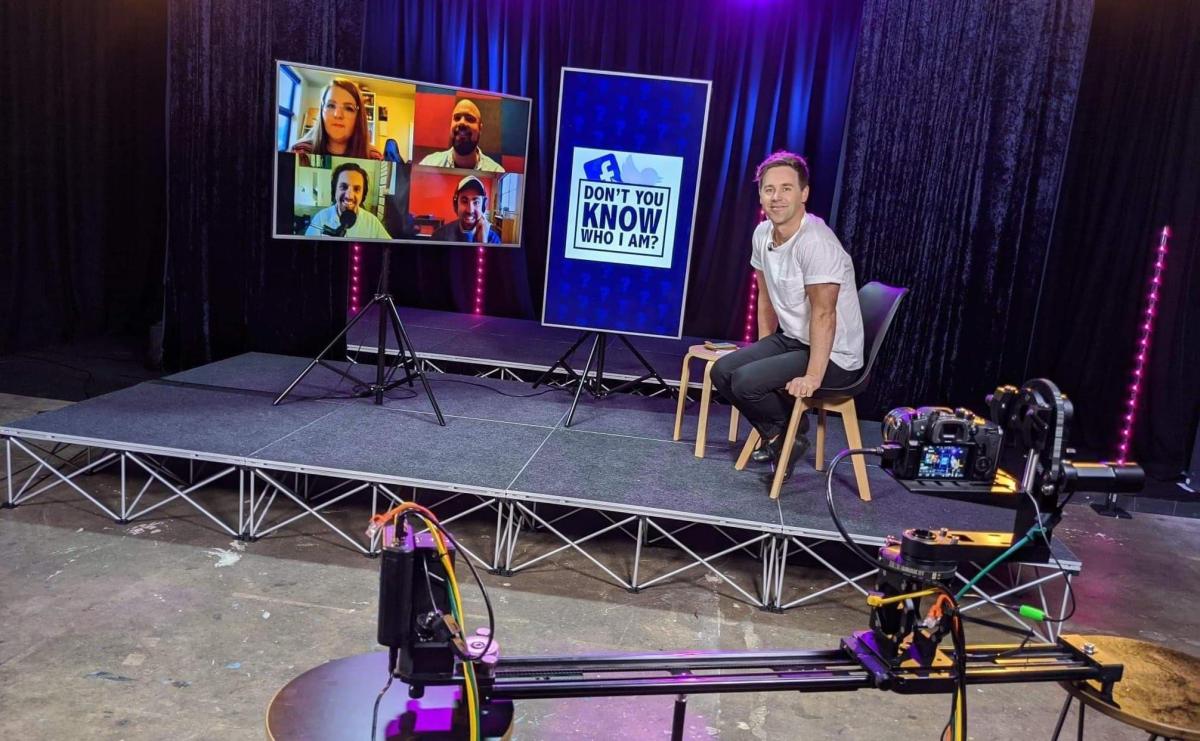Artists across the country are adapting their creative practices as we work collectively to minimise the spread of COVID-19.
Whether pivoting from live performance to ticketed events online or drawing on previous experiences in order to adjust to lockdown, the latest episode of The ArtsHubbub explores the many ways artists have factored coronavirus restrictions into their day to day routines.
For Episode Four: Artists in COVID-19 Lockdown, the ArtsHub team has also adjusted to isolation, recording interviews via Skype and Zoom instead of face to face – so while the audio quality might not be perfect, the ideas we explore are more pertinent than ever.
Clinical psychologist Jane Miskovic-Wheatley has worked closely with the Arts Wellbeing Collective; she compares our current collective situation to being on the road, an experience many artists will be familiar with – while noting there are also important differences.
‘When you are on tour, you’re often not able to see your family and friends face to face and you are contacting via screens, you have to adjust your usual routines, you have to be kind of creative in the way that you find your exercise enjoyable activities. So there are some common elements – but the obvious differences are not traveling, not working, not continuing or creating in a way that you would prefer,’ Miskovic-Wheatley said.
This is making people feel ‘overwhelmed and uncertain, which I think is very understandable,’ she added.
One way to turn the current situation to our advantage is to make use of the free time we all now have, Miskovic-Wheatley continued.
‘One of the things that I do think we do have is time. And often we see time as something that we never have enough of. But once we get through the trauma experience, hopefully we see that our experience of time could be a gift,’ she said.
‘This could be a time where people could look at new skills or look at new creative practice, or look at re-education or learning – again, with that goal of building resilience.’
‘Once we get through the trauma experience, hopefully we see that our experience of time could be a gift.’
– Jane Miskovic-Wheatley
Although he misses live performance, comedian Josh Earl has adapted to COVID-19 by charging a modest amount for tickets to watch the live recording of his weekly podcast, Don’t You Know Who I Am?
‘I’ve been doing the podcasts for four years now and … people know now that this is this is my only source of income. And so I’m like, “Well, I’m going to put up these special streamed episodes for $10”. You can watch them live as they’re streamed or you can watch them for 24 hours after the stream finishes, and then they disappear forever.’
In a way, it’s an attempt to capture something of the ephemerality of live performance, Earl explained.
‘You’ve only got a small window to see it, which is what I like about live stuff. It’s like you had to be in the room, or you missed it.’
CRYSTAL BALL GAZING
We also spoke with Seb Chan, the Chief Experience Officer at the Australian Centre for the Moving Image, about what the arts might look like after lockdown. He suspects we might see a lot more people telecommuting once the pandemic is over.
‘People will ask, “Why can I work from home more often? What is the office actually for?” And I think that’s a good thing … I don’t think that the workplace is necessarily going to go back to “everybody has to be in the building all of the time,” [that] sort of model, which I think is incredibly positive for more flexible working practices.’
Our final guest this month is writer Donna Ward, the author of She I Dare Not Name: A spinster’s meditations on life, a memoir about being a single woman over 50.
Ward says that many of the experiences and emotions the world is currently grappling with, such as loneliness and isolation, are things she came to terms with several decades ago.
‘I think a lot of women in particular in their late 30s and 40s now will be experiencing that kind of rugged loneliness where you have hours on end – sometimes even days on end to yourself,’ Ward explained.
Her solution? Embrace the impossible.
‘Get yourself a task that you think is totally impossible for you to do. I decided back then in my 40’s to write a book and it’s taken me 20 years to get that book out. I’ve done some other things along the way. But that book saved my life, as art saves lots of people’s lives … I never thought that I could write a book; I just thought I need something that’s bigger than me to contain me, to hold me in this time.’
The ArtsHubbub episode four: Artists in COVID-19 Lockdown is available now via your favourite podcast platform.




